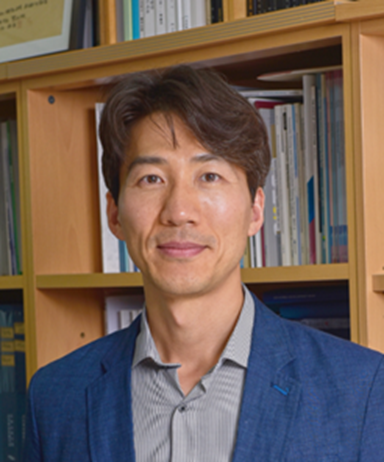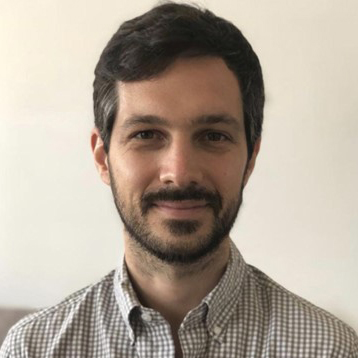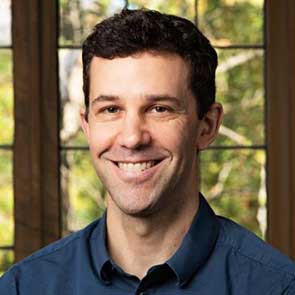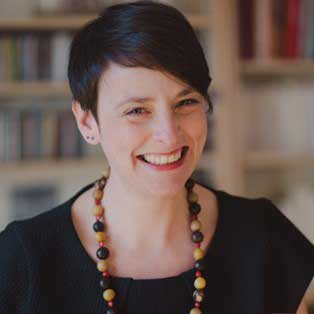

Bridge the Rent Gap
Amidst the global crises of housing unaffordability, land enclosures, and widening social inequalities, there is a renewed interest in land rent and rent gap theories. However, there is a lack of grounded research, and even less on the Global South/East, where 90% of the world’s population lives and intensive land struggles are taking place on a larger scale.
The online lecture series aims to offer new insights into land rent and rent gap theories based on examples from diverse geographical contexts. It features ten lectures, which will be delivered between April and May, 2024. It is jointly organised by Professor Ernesto López-Morales (School of Architecture, San Sebastian University, Chile) and Dr. Yunpeng Zhang (School of Architecture, Planning and Environment Policy, University College Dublin).

Dr. Joon Park
The first lecture was given by Dr. Joon Park (University of Seoul) on April 9th, 2024. Joon will share a Marxian perspective on land rents in housing submarkets. In particular, his lecture will focus on the relationship between residential spaces and the reproduction of labour power.
(opens in a new window)Recordings of the Lecture can be found here.
Abstract
This theoretical study delves into the dynamics of housing submarkets with the framework of Marxian land rents. It examines the relationship between residential spaces and the reproduction of labour power in terms of commuting and the differentiated quality of reproduction by submarket. This study shows that the differentiation process of venturing to create distinct spaces for surplus profit and the emulation process of copycatting spaces of higher rents consequently form multiple housing submarkets, each characterised by different land rents of monopoly, intra-differential rent (intra-DR) and inter-differential rent (inter-DR). The coexistence of these multiple layers of land rents, in turn, becomes a driving force propelling dynamic capital movements that seek to exploit rent gaps between the layers. To illustrate these concepts, the study reviews the case of high-rise mixed-use residential developments in Seoul, highlighting the dual dynamic processes through which land rents are pursued.
Biography
Dr. Joon Park is an associate professor at the International School of Urban Sciences, University of Seoul. He works in the fields of land / urban economics, housing market analysis, and social housing. Major themes in his recent research include the structure of land rents in an urban context; the impacts of the expansion of cities on house prices; the transformation of spatial housing submarkets; assisted self-help housing; real estate taxes, smart cities; and more broadly the application of land rent theory and spatial analysis to questions of the structure of cities.

Gergely Olt
The second lecture will be given by Gergely Olt (the HUN-REN Centre for Social Sciences, Institute for Sociology) on April 16th. His talk will discuss housing commodification and gentrification in post-socialist Budapest.
Please (opens in a new window)register here.
Abstract
In post-socialist Budapest, gentrification has remained modest for decades after the regime change (1989) due to politically controlled economic relations besides marketization, surprising also Neil Smith himself. The neopatrimonial control over the state and markets was amplified after 2010 with the unrestricted political power gained by the illiberal Orbán regime.
Populist housing privatisation for tenants, insufficient regulation of rental housing, mortgage policy and urban rehabilitations with systemic corruption caused moderate level of housing market commodification before the 2008 financial crisis and the political change in 2010. However, gentrification accelerated from 2014. Among other factors, the restriction (and not the expansion) of mortgage lending and the unplanned expansion of tourism and short term rentals created a speculative spiral among neopatrimonial power and economic relations and the patrimonialisation of housing markets. Speculation increased the commodification of the real estate market, however the proportion of foreign investors decreased, the renewal rate of the housing stock remained low and institutional landlords are still absent. The commodification level is still lower than in more neoliberal contexts.
Similar contextual issues were mentioned in the gentrification literature before; however, they remained external modifying effects of the assumed nomothetic political-economic mechanisms behind rent gaps under neoliberal governance assumed to be determinant everywhere, even if in hybrid forms. We suggest taking seriously social and political mechanisms beyond the superficial modification and hybridisation of otherwise still determinant neoliberal market processes. This way we can connect institutional, social and political factors with dynamics of land rent through the concept of commodification and its effects on potential ground rent. We rather directly include these factors within the causes of gentrification, instead of just understanding them as mere modifying features of universal political-economic mechanisms determining land rents.
Biography
Gergely Olt is an assistant researcher at the HUN-REN Centre for Social Sciences, Institute for Sociology. His research interests are how local political and institutional contexts affect urban transformations and how these contextually different experiences can be theorised by the revision of universally claimed political economic concepts and mechanisms. His publications are about locally appearing social conflicts (i.e. gentrification, touristification, mega-projects), social movements involved in them, and about issues of local sovereignty in different socio-political contexts.
On April 22 (UK and Europe) or April 23 (Australia), Matthew Richmond (Newcastle University) and Jeff Garmany (Melbourne University) will discuss the applicability of the rent gap theory in the Brazilian urban contexts.

Dr. Matthew Richmond
Dr. Matthew Richmond is Lecturer in Political Geography at Newcastle University. He holds a PhD in Human Geography from King’s College London. He was Postdoctoral Researcher at the Centro de Estudos da Metrópole (CEM) and the Universidade Estadual Paulista (UNESP), São Paulo, and Leverhulme Trust Early Career Fellowship at the London School of Economics (LSE). Matthew’s research explores themes of urban development, governance, sustainability, and subjectivity in Brazilian cities. He is Secretary of the Latin American Geographies Research Group of the Royal Geographical Society and Associate Editor of the Revista Brasileira de Estudos Urbanos e Regionais.

Dr. Jeff Garmany
Dr. Jeff Garmany is Senior Lecturer of Latin American Studies in the School of Social and Political Sciences at the University of Melbourne. He completed his BA in Anthropology at the University of Colorado, and his MA and PhD in Geography at the University of Arizona. Before joining the University of Melbourne, he held an appointment at King’s College London in the Department of Geography and the King’s Brazil Institute. His research is based in the fields of Urban Studies, Political Geography, Critical Development, and Latin American/Brazilian Studies. His publications include Understanding Contemporary Brazil, co-authored with Anthony Pereira (Routledge, 2019), along with numerous journal articles and book chapters.
Abstract
Recent research in Latin America, and our own analysis of Brazilian cities, indicate that aspects of rent gap theory – in particular, the assumption that strong links exist between rent gaps and gentrification – do not fully account for observed empirical conditions. Drawing on Milton Santos' theory of “two circuits” of urban economies in the global South, we seek to develop an expanded framework better suited to explaining the Latin American context. Specifically, we argue that important socio-spatial processes combine to embed what Santos called the “lower circuit” in certain parts of the city. This “territorialisation” of space by the lower circuit impedes the entry of the upper circuit, thus constraining expected rent gap capture and gentrification. We argue that only by taking both circuits into account, and considering how they become territorialised in urban space, can we properly grasp the relationship between rent gaps and gentrification in Latin American cities.
Please (opens in a new window)register here.

Professor Violaine Jolivet
The fourth lecture will take place on April 29. Prof Violaine Jolivet will discuss the roles of transnational migrants and families in gentrification, especially in creating and exploiting the rent gaps.
Abstract
This article addresses the two processes of market making and transnationalization in Havana through the lens of gentrification theory. Using a case study situated between Global South and East, this article looks more closely at transnational families and migrants as agents of gentrification in Havana, analysing how they create and exploit the rent-gap. Returning to the central ideas of ‘highest and best use’ and ‘circulations’ in N. Smith's rent-gap theory, I analyse how increased transnational mobility has affected the commodification and potential use of housing in Havana. Based on interviews with transnational owners who purchased housing to upgrade and convert into an Airbnb, this article shows how the “highest and best use” of a property is evaluated from elsewhere. It also demonstrates the complexities of transnational gentrification in a southern socialist city and insists on the need to understand more broadly the gentrification–migration nexus.
Please (opens in a new window)register here.
Biography
Violaine Jolivet is Associate professor of Urban Geography at Université de Montréal (UdeM), head of the TRAMES Lab (Transnationalism and Metropoles) and P.I of the FRQSC Grant: Gentrification, financialization and resistance. The end of the affordable city and the housing crisis (2022-2027). Based in Montreal and Havana, my current research explores what I define as the Gentrification - Migration Nexus in a comparative perspective and focuses on the question of transnational mobility (migration, tourism, circulation of urban models) and its impact on urban production, right to housing and transforming ambiances in inner-city and inner suburbs.
Upcoming Lectures
May 8 -- Ivo Gasic (Universidad Alberto Hurtado, Chile)
Title: Disentangling land financialisation: Insights from Santiago de Chile’s land lease-purchase contracts
Please (opens in a new window)register here.
May 14 - Hao Gu (Hunan University)
Title: Expanding Frontiers of Commercial Gentrification: Rent Gap and Sequential Gentrification in Taikoo Li of Chengdu, China
Please (opens in a new window)register here.
May 21 -- Selim Banabak (TU Wien, Vienna, Austria)
Title: Closing the Rent Index Gap – A quantitative approach to rental-sector gentrification
Please (opens in a new window)register here.
May 23 -- Thomas Sigler (University of Queensland, Australia)
Title: Spatio-temporal variation in the bid–rent functions of long-term and short-term rentals: Evidence from South-East Queensland, Australia
Please (opens in a new window)register here.
May 28 -- Cheng Liu (China University of Geosciences, Wuhan, China)
Title: Is China making the rent gap theory untrue? Lessons from Nanjing
Please (opens in a new window)register here.
May 31 --Chunhui Liu (Nanjing Agricultural University, Nanjing, China)
Title: Who Cashed the Rent Gap? An Alternative Narration
Please (opens in a new window)register here.